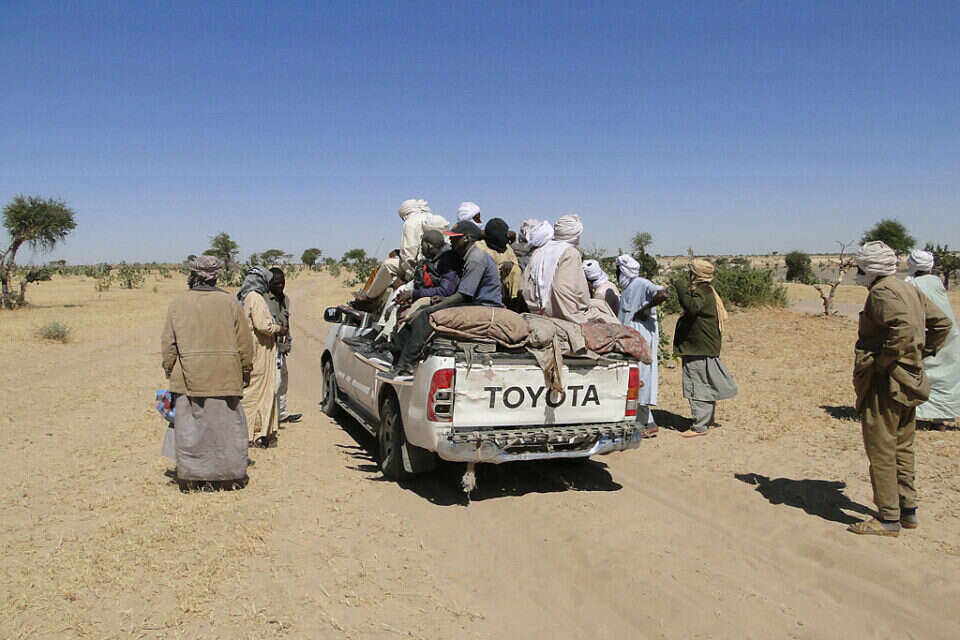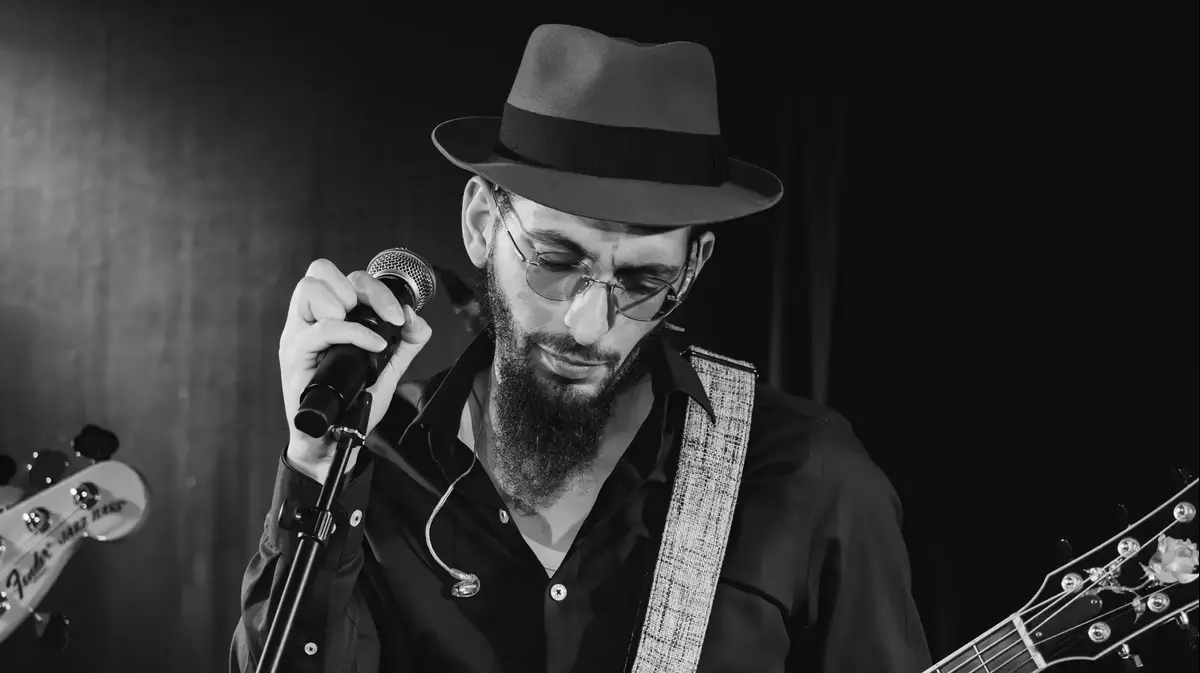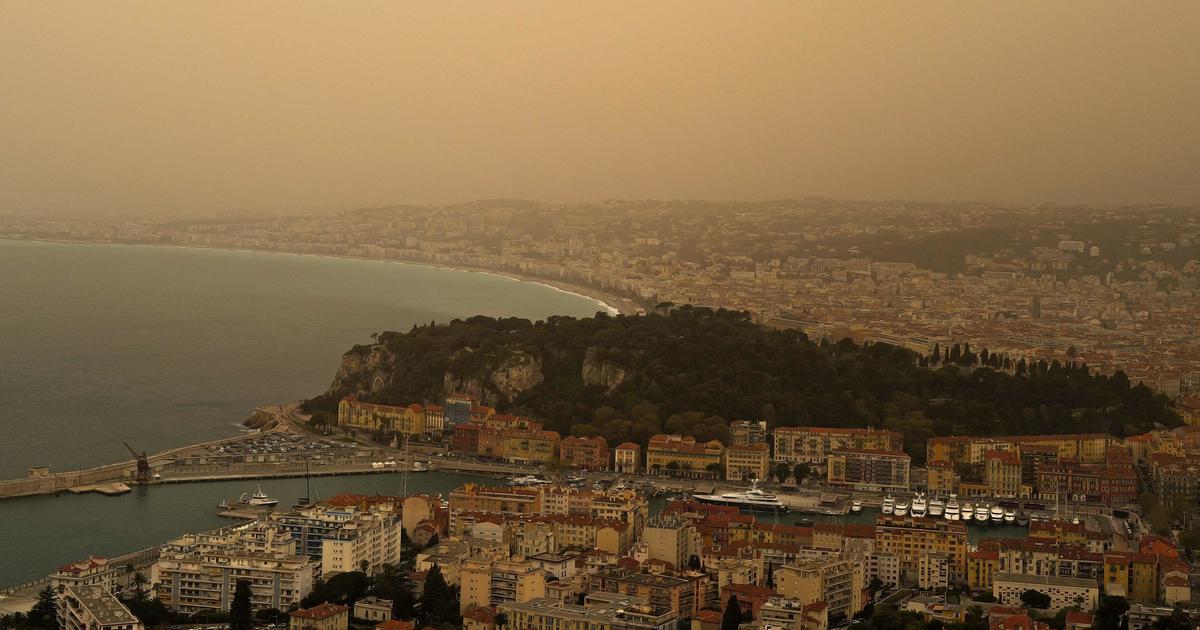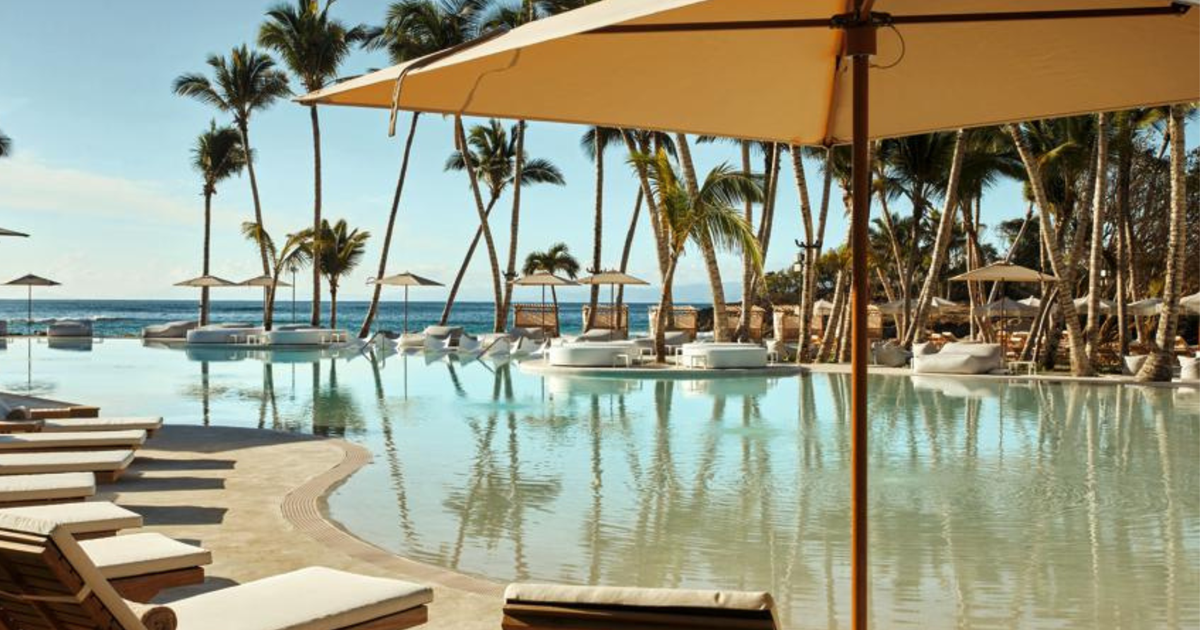Why did I go to Chad?
This is what I and others are asking to this day.
Maybe because in 2014 it was an unrecognized country, and the average citizen did not know it existed at all.
That year I was in the middle of a backpacking trip around the world.
After a month in Egypt, the visa was about to expire and had to continue somewhere.
I tried to get a visa at a row of embassies, but no one could issue a visa fast enough.
The Embassy of Niger took pity on me and promised to issue a visa "as soon as possible", and the Embassy of Chad was also sympathetic.
And so my young and reckless version landed in Niger and immediately proceeded to Chad, overland.
Because the countries are close on the map, and that makes sense.
But there is no road between Niger and Chad, nor a "dirt road."
Only tire imprints in the sand, a souvenir from previous jeeps.
It takes two days to cross the huge dunes that separate the two countries.
In this area, everything is sitting in a sandbox - the trenches of the Border Police, and nomadic villages, who made a living from smuggling - drugs, weapons, equipment for Boko Haram.
There was no information about the area on the Internet, except for the "no man's land" where "no tourist passed through."
I thought it was another fabricated journey warning, but then I learned about my flesh what the wisdom of the masses is.
To the previous part of the blog:
- "Do you want to die? It will be faster to shoot yourself": An Israeli backpacker in the most dangerous country in the world
- "Killed by crossfire": The impossible task of journalists in Africa
"The Rebels Looted the Printer": The Absurd Theater of Press in Africa
14 people were crammed with me in an old Toyota, which was supposed to cross the border.
Two sit next to the driver, and the rest in the back - kneeling, sitting, lying down and in a fetal position, combined with each other like a tetris.
When the jeep is speeding on the sands, everyone flies into the interior space and hits the roof.
When the jeep digs in the sand, everyone goes out and pushes, and then everyone returns to the position in which they were arranged.
A town near the Niger Chad border, in the city of Sand // Photo: Tamar Bers,
Before we set off we paid the driver a high price "because it's a night ride", but after two hours of driving the driver stops and announces: "I'm tired, we will sleep here and we will continue tomorrow".
Without a word of complaint, the passengers go to sleep in the sands.
In the morning they pray and we continue our journey.
An hour later the engine shuts down.
The driver shrugs and sits down under the tree.
"I do not have spare parts," he says, "need someone to bring them from a nearby town."
The nearby town is hours away, and commuters climb the dunes to gain absorption and call for rescue.
But there is no absorption.
So they despair and wait under a tree, hoping someone will pass by, and spread in the next town the rumor of a stuck vehicle needing spare parts.
Nomadic children in Chad // Photo: Tamar Bers,
The passengers accept it calmly, as if it were part of the planned schedule. They sit on the sand, draw circles in it, talk to a tramp passing by with a camel caravan. "I can promote you," he says, pointing to his camels.
"It happens a lot here," a passenger explains to me, "this time we are lucky, because there is a well a mile away."
But it boils outside, and after two hours the patience runs out, and the ugly Israeli leaves.
"Listen, there's no way," I told the passengers, "we paid a lot of money, the driver stuck us twice, did not bring spare parts, in short, we did not get service," and they looked at me like I fell from the moon, which is true, because "service" is a waving word Eager and flashy, not a driver in the middle of the Sahara.
"Let's demand the money, and pay for an alternative ride!"
I said.
Stuck in the sand, the way the jeep got stuck // Photo: Tamar Bers,
And they hesitated, because it is not acceptable, but the hot sun had already knocked my brain and I had to inflame the winds:
"The driver has no water, we have one liter for everyone, and we will dry up and that is irresponsible!"
And to the driver I said, "Give the money back!"
The driver said - "I have no money", and we knew it was not true, because we were together in the desert from the moment of payment until now.
One passenger got into action, approached the driver and began rummaging through the folds of his clothes.
Then travels second, and third.
Honestly, I imagined yelling at him until he gave up, but their method worked better because the driver said, "Okay, some money left," and took out some bills.
Traces of tires in the sand, the road between Niger and Chad, Tamar Bers
An hour later, a ride passed by.
The hitchhiker took his head out the window, saw me, the vehicle, the situation, and collected three of them for a fee, in a very fast ride.
The rest dispersed for more rides, and the driver apparently returned to the border town, repairing the vehicle and picking up other passengers.
I tried to think what would have happened if I had followed the rules.
I have such a picture in my head - at the threshold stage - dehydration we would reach the well, take water.
Within three to four hours, a passerby would see us, continue to the garage in the nearby town, inform them that there was a stuck vehicle that needed a spare part.
At best, the garage would bounce off the part, another three hours.
Then another hour to repair the vehicle.
Full day, total.
Then we would drive, to get stuck again, because there were 14 passengers without enough spare wheels.
And maybe the garage would not bounce spare parts, because there is none.
That it adds two more days to the story.
It is said that Rome will be Roman.
But I was bad at it.
A country without money for passports
I had a sloppy Arabic of a market and the Chadians had two hundred tribes, only some of whom spoke Arabic, one that was mixed with local languages and had nothing to do with anything, and had to be persuaded to use it.
They preferred French, because "all whites speak French. How come you do not know French ?!"
On the way to Chad, when we abandoned the driver and got on hitchhiking, I was joined by the only Chad who understood me, because he saw movies from Egypt and Lebanon.
We communicated in Arabic, English, sign language and his help.
We drove all night, then reached the border crossing - on the Nigerian side.
We and Chad were separated by hours of driving and many dunes that did not belong to anyone.
Every vehicle that reached the border crossing was stopped next to a soldier, who glanced at "Lasse Fassa" (travel documents in French) - a page with the passenger's handwritten details, which replaces the ID card.
The soldier transferred the pages to the nearby ditch, where the official who knew how to read sat.
Slowly he copied names and numbers to a tattered notebook, returning the Lassa Pass to passengers.
The numbers will remain buried in his notebook, because in the dunes there is no computer, no internet and no cellular reception.
But the listing provides work for the residents of the book, so no one asks questions.
The doctor at the border crossing between Niger and Chad // Photo: Tamar Bers,
In 2017, Chad entered Trump's' list of banned states, along with Syria.
This angered the Chadians, because "Chad did everything to eradicate terrorism."
But then it turned out that it was because of the passports - Chad ran out of passport pages, and she stopped producing them.
While all countries were asked to meet the criteria of the "fight against terrorism", including sending a sample passport to the United States - Chad failed to meet the requirement.
It was trivial to the point of embarrassment, so Washington said "it's not just the passports, Chad is not giving enough information about terrorists crossing its borders."
But how is that supposed to happen when the information is collected in a notebook, by a clerk who can barely read, while the soldiers, passengers and nomads sit on the dune and share camel meat and sardines, and are photographed together because it's cool and that - well, boring here.
But there was an Ebola filter - in that year the Ebola epidemic hit the neighboring countries.
Inside one of the trenches sat a doctor who checked the warmth of the passengers.
Turns out I was healthy, I had a more tidy passport than most of the passengers, but there was another problem.
Main road in Chad // Photo: Tamar Bers,
The clerk glanced at his passport and called his boss, who called his boss.
"A white tourist has not been here for ten years," said the senior echelon, "I do not want to be the first to move a tourist here. You will have to return to Niger."
Luckily, the rescuer-passenger intervened-
"Madame is tired," he said, "she traveled three days from Niamey (the capital of Niger). Please, let her pass," and it worked, because they released us and we continued to Chad.
The first backpacker in Chad
We were stuck for five hours in the border town of Chad.
The driver had to deal with paperwork, and Chadian paperwork flows like Chadian transportation.
Landjamana, the capital, we arrived at night.
The driver passed by several guest houses, and everyone looked at me and said - "there is no place".
"Well, sleep with me," he said.
In the morning he dropped me off at the "White People's Hotel Neighborhood."
Covered in sand, after four days without an old-fashioned shower-size shower, I went hotel-by-hotel.
They all cost at least $ 150 a night - because the only ones using the hotel are whites and people with money.
And I had no internet, and there was - nothing.
I was sitting in a hotel lobby, cursing the world, when an American aid worker passed by.
"You need help?"
He asked.
"Do you know a cheap place?"
"Cheap? There's no such thing. What did you come here to do?"
"Backpacking."
"Backpacking? In Chad? I think you're the first."
"Does that mean there are no backpacker hostels?"
"nothing".
"Guest House?"
"There are places for truck drivers and prostitutes, but I would not sleep there without weapons. You can sleep in our room if you want. The association pays."
Cityscape in Chad // Photo: Tamar Bers,
It was Mike, a righteous man, who in return for his generosity, I left piles of sand in his room.
I saw Mike calling a "local friend who works in tourism" to tell him that "Musa, backpackers are discovering Chad. The first one is here with me."
And Musa asked, "Backpackers? What is it?"
Mike showed me Nadjmana's nightlife, reminding me to "drink non-stop, because it's hot here to die," and "always close the cab windows because people will get their hands in and snatch your wallet."
We arrived at a pub that was mostly prostitutes and French soldiers on vacation, and one table of volunteers, which we approached.
"I feel sleazy," one of them said, so we continued to the restaurant.
They, unlike me, had reasons to be in Chad.
One volunteer - at the French Cultural Center said "this is a funny job but the locals in the French section and I am dying for it, even though in summer the heat is shocking, and no, now not summer, the peak is in two months".
Another volunteered at an aid organization and said that "we are in a compound with electricity barely, but that's fine as long as you are not sick. If you are sick you get knocked out because in Chad you go to the hospital to die."
Prime Minister Netanyahu and former Chadian President Idris Debbie // Photo: Kobi Gideon, GPO,
Otherwise she was in an internship program for lawyers.
"This is an interesting time," she said. One.
But this is not the only drama. The lawyers in this trial took the world's attention to open a strike. The first hearing took place without lawyers, the Chadian media forgot to mention it, but the French saw empty seats. Judgments and did not pay for claims in which she lost. "
The lawyers had another front in front of Debbie.
They published an open letter in the press, with a polite request to maintain the status of the judicial system, and to cancel a series of bizarre appointments, of new judges popping up in the system, unable to read.
In a country where 88 percent do not know how to read, it is difficult to put together a sentence.
To continue the experiences of Tamar Bers, a journalist and traveler, the dark corners of the world on her Facebook page.









